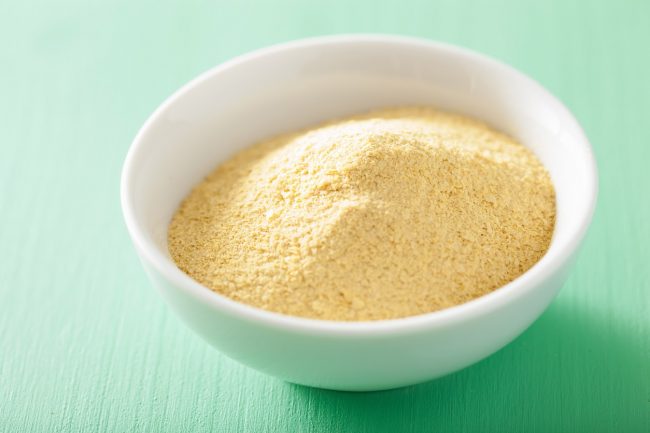Yeast isn’t just for baked goods and beer. There’s another kind of rising star known as nutritional yeast. It has a tangy, cheese-like flavor and can be a versatile addition to many dishes. But as the popularity of this unique food has grown, so have the concerns over its safety.
What is nutritional yeast?
Pure nutritional yeast is grown from sugar cane, molasses or wood pulp and is produced specifically for human consumption. Once the yeast is harvested, it is then heated, making it inactive. In spite of its unusual name and appearance, nutritional yeast can add great flavor to many dishes and boasts an impressive nutrient content.
Is nutritional yeast safe to consume?
With so much information available, it’s hard to determine nutritional yeast facts from fiction. So why not dive deeper into some of the main concerns floating around?
Fiction: Yeast infections are not pleasant and a sign that your body is out of balance. Therefore, consuming yeast can’t be good for you.
Fact: Yeast infections are caused by candida, which is not a good form of yeast. However, nutritional yeast is a completely different strain and, as discussed earlier, is inactive. This means your body treats nutritional yeast as it would any other food.
Fiction: Nutritional yeast is too high in phosphorous, which can lead to a pH imbalance and may cause calcium to be leached from bones.
Fact: While nutritional yeast does contain phosphorous, a person would need to consume an extremely large amount of nutritional yeast on a daily basis in order to reach a level that may be cause for concern. Additionally, as long as you’re consuming a diet balanced in all necessary nutrients – including calcium – you shouldn’t have any issues.
Fiction: Nutritional yeast contains compounds like those found in MSG, which are known to cause health issues.
Fact: Natural yeast, like nutritional yeast, contains glutamic acid, which the body knows to break down into glutamate, a nonessential amino acid. Glutamate becomes a concern when it’s present in the free form and in very large amounts. Many processed foods are high in free glutamate. However, the small amount of glutamic acid in nutritional yeast is not reason to ring the alarm.
Nutritional yeast benefits you’ll eat up
Feeling better about nutritional yeast now? In case you need a few more reasons to give it a try, here are some of the top ways nutritional yeast benefits your health:
- Just one serving of this low-calorie food is packed with B vitamins, riboflavin, folic acid and niacin. These are micronutrients that many, particularly vegans, struggle to obtain in sufficient quantities.
- Nutritional yeast is relatively high in protein and fiber.
- With a distinct flavor, nutritional yeast can be a great cheese substitute in sauces and creams as well as a topping for stovetop popcorn.

